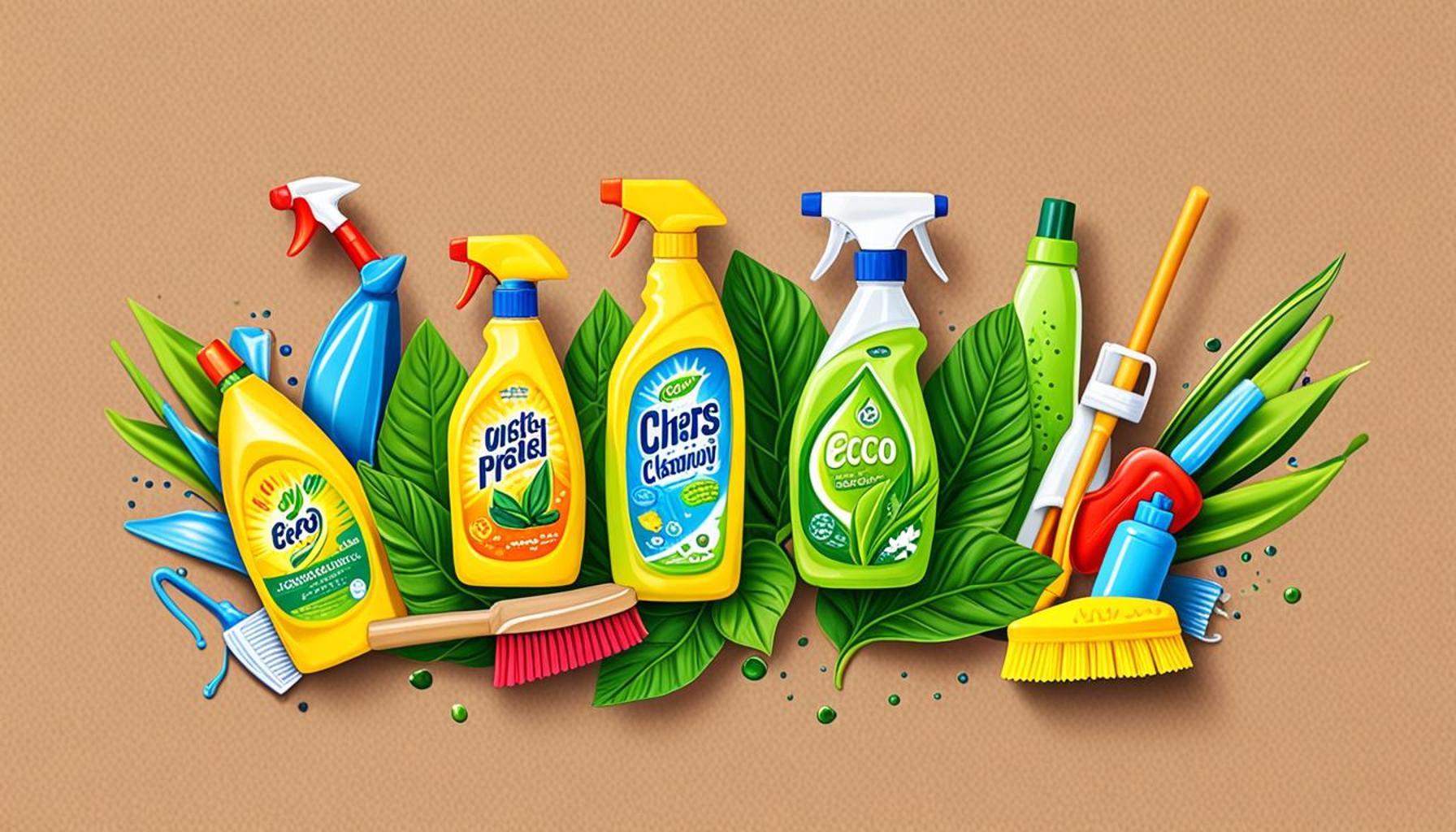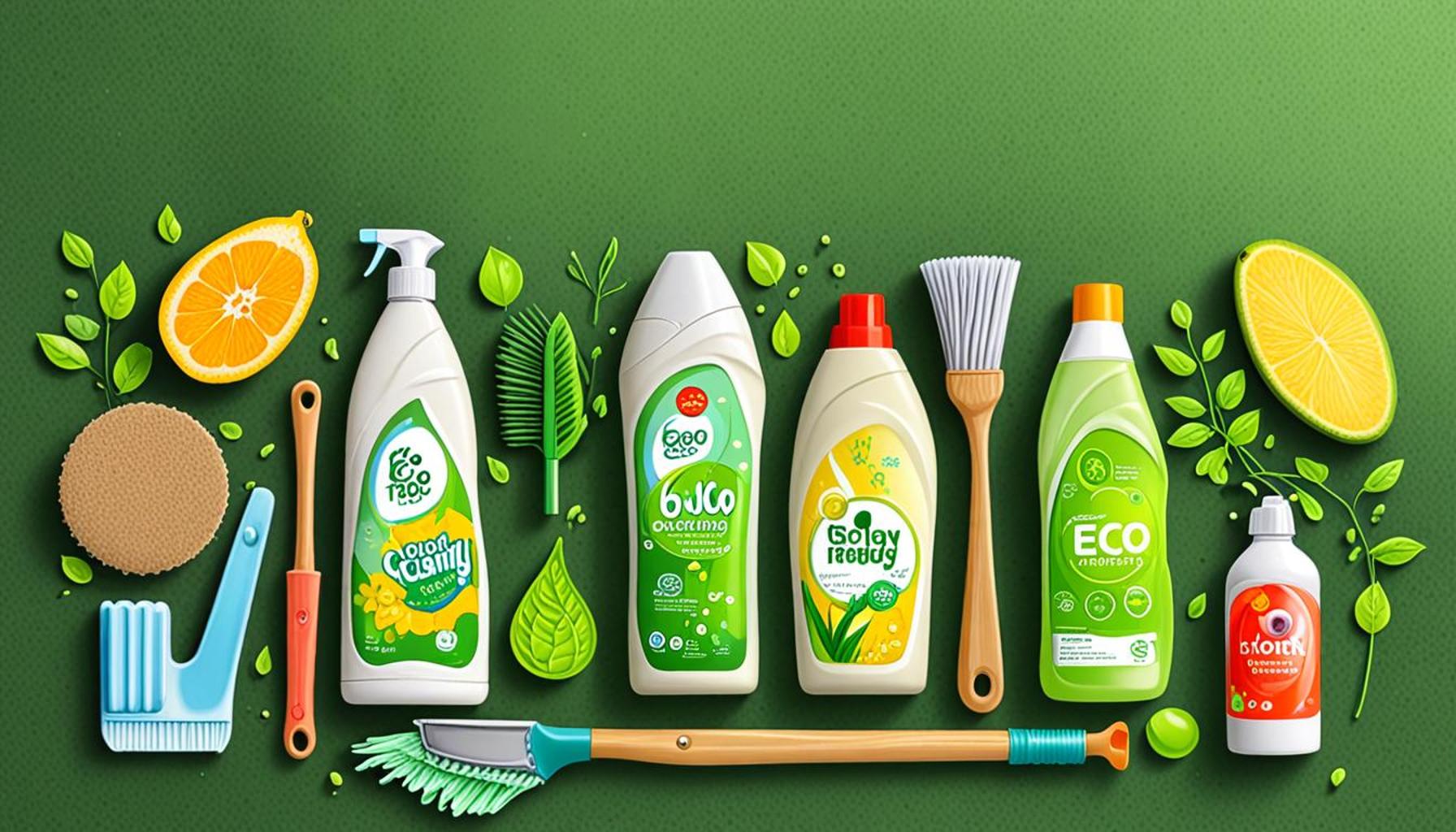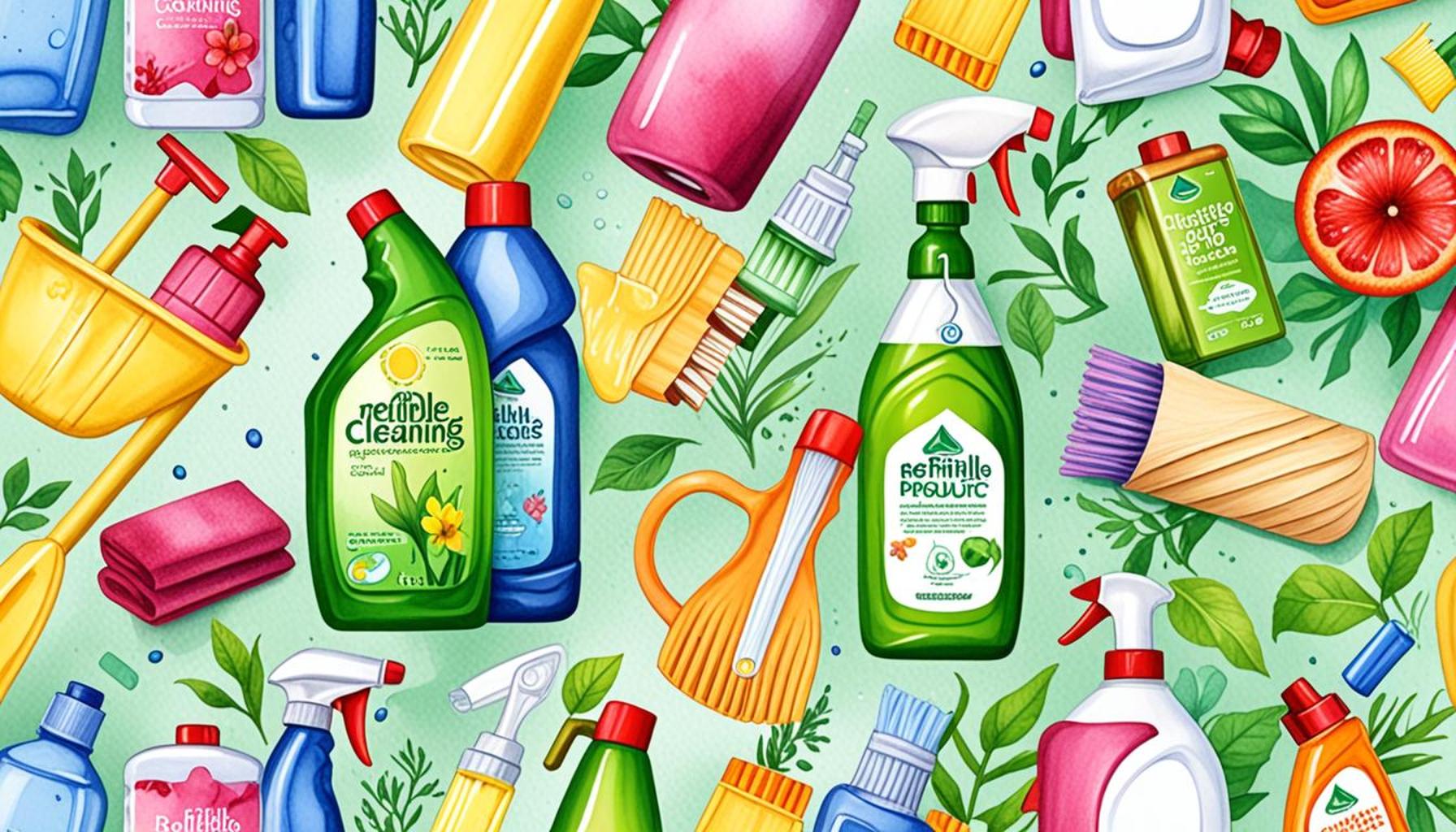Switch to a Zero-Waste Cleaning Routine Eco-Friendly Tips Guide
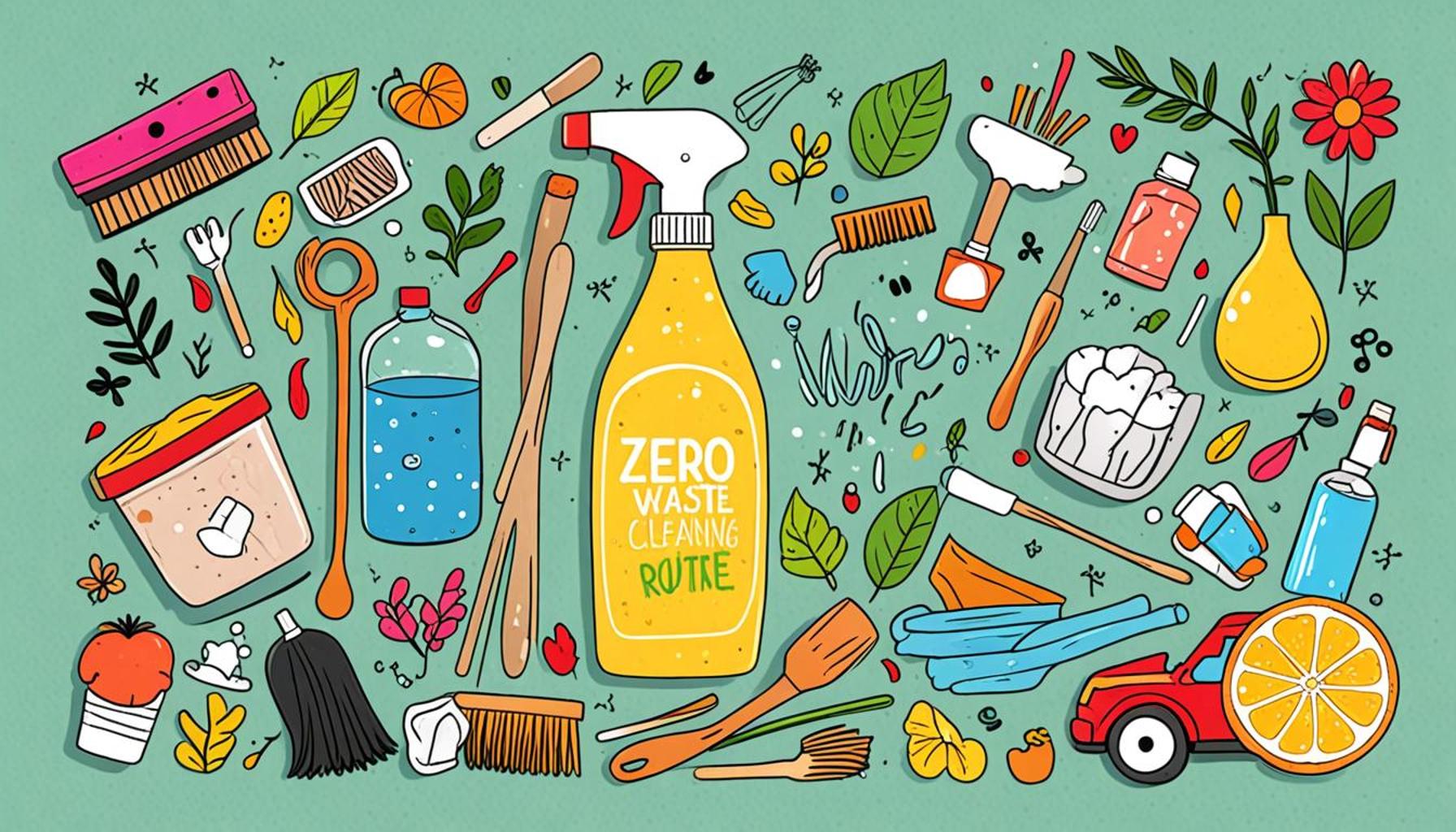
The Importance of a Zero-Waste Cleaning Approach
As we navigate through an age of heightened environmental accountability, a transformative shift in our cleaning habits is gaining momentum. Traditional cleaning products, often laden with negative environmental impacts, are leading many consumers to seek alternatives that are not only effective but also sustainable. The zero-waste cleaning movement stands out as an impactful initiative aimed at reducing our ecological footprint while ensuring a hygienic living space.
Understanding the importance of adopting a zero-waste cleaning routine can illuminate the profound impact of our everyday choices. Here are a few compelling reasons to make this change:
- Reduce Waste: The ubiquity of single-use plastic bottles and containers is staggering, resulting in millions of tons accumulating in landfills each year. According to the Environmental Protection Agency (EPA), plastic waste contributed to approximately 27 million tons of garbage in 2018 alone. By switching to reusable options, individuals can drastically cut down this waste.
- Minimize Toxic Chemicals: Many traditional cleaning products contain harsh chemicals such as phthalates and chlorine bleach, which can significantly degrade air quality. Prolonged exposure can lead to respiratory issues and other health-related problems. Embracing natural cleaning agents can mitigate these risks, promoting a healthier home atmosphere.
- Cost-effective Solutions: The reality of using DIY cleaning products often translates to significant savings. Common household ingredients such as vinegar and baking soda are both inexpensive and highly effective, allowing consumers to ditch pricey commercial alternatives. Over time, the financial benefits of utilizing these staple ingredients become clear, with potential savings of hundreds of dollars annually.
Transitioning to a zero-waste cleaning routine can involve practical and achievable steps. Here are some eco-friendly tips for getting started:
- Choose Reusable Products: Opt for washable cotton cloths, mop heads, and even reusable vacuum bags instead of disposable options. Not only do these choices offer significant waste reduction, but they can also be more cost-effective in the long run.
- Invest in Bulk Cleaning Supplies: Purchasing items such as liquid soap, baking soda, or essential oils from bulk sections can significantly reduce packaging waste. Many grocery stores offer bulk options for these products, encouraging consumers to bring their own containers, thereby minimizing reliance on pre-packaged goods.
- DIY Cleaners: Empower yourself by creating your own cleaning solutions using simple ingredients. For instance, a mix of vinegar, water, and a few drops of essential oil can serve as an effective all-purpose cleaner. This not only gives control over what’s in your cleaners but also reduces exposure to harmful toxins.
Embarking on the journey towards a zero-waste cleaning routine may seem daunting at first, but every small action contributes significantly to a more sustainable future. As awareness grows and eco-friendly techniques become more accessible, individuals can pave the way towards not just cleaner homes, but a cleaner planet for generations to come. By exploring effective zero-waste cleaning methods, you help foster a culture of sustainability that echoes far beyond your doorstep.
CHECK OUT: Click here to explore more
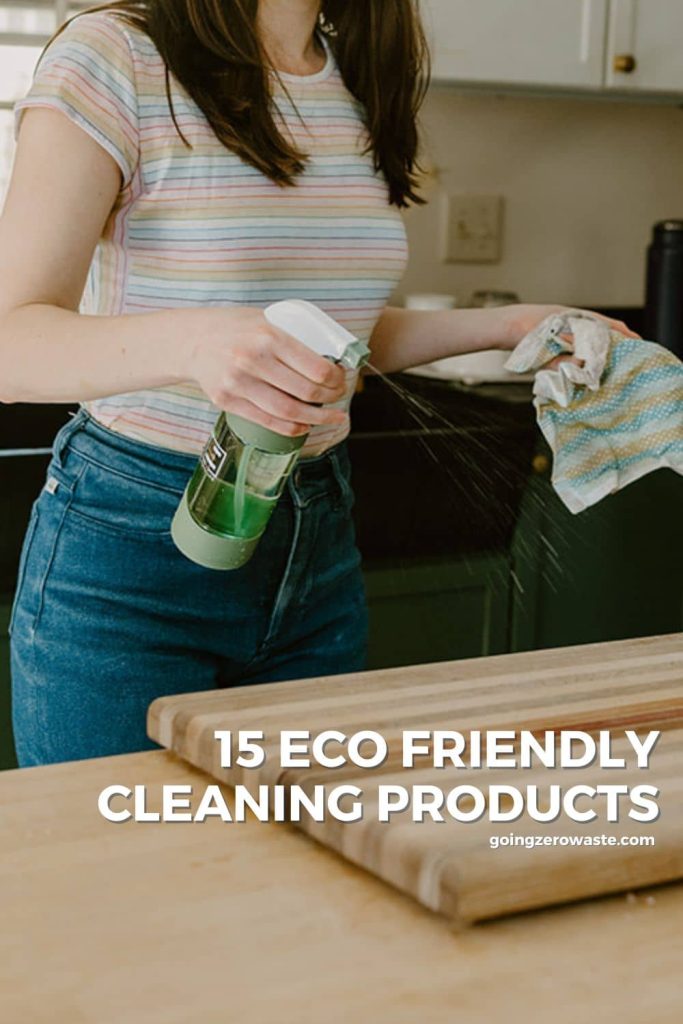
Practical Steps to Embrace Zero-Waste Cleaning
Making the switch to a zero-waste cleaning routine is not just a trend; it’s a commitment to environmental responsibility and personal health. This shift can be both empowering and achievable, allowing individuals to play a pivotal role in reducing their ecological footprint. Below are a myriad of practical steps that anyone can take to institute an eco-friendly cleaning regimen:
- Implement Sustainable Storage Solutions: Begin by reassessing how you store your cleaning supplies. Invest in glass or stainless steel containers for storage. Unlike plastic, these materials do not leach harmful chemicals and can be reused indefinitely. Labels can be easily applied and removed, giving you a flexible organization system.
- Utilize Natural Cleaners: The beauty of zero-waste cleaning lies in its simplicity. Ingredients such as white vinegar, baking soda, and lemon juice are not just non-toxic; they are also remarkably effective. For example, a mixture of vinegar and water serves as an antiseptic cleaner, while baking soda acts as a gentle abrasive for scrubbing surfaces.
- Make Cleaning Tools Last: It’s easy to overlook the lifespan of cleaning tools, but longevity often means less waste. For instance, consider using a bamboo broom or natural fiber scrub brushes that decompose when their life cycle is complete. Regular maintenance can ensure that they serve you longer, minimizing the need for replacements.
In addition to these tangible steps, integrating zero-waste principles into your cleaning routine can extend beyond the products you choose. Here are some important practices to consider:
- Embrace Minimalism: Reflect on how many cleaning products and tools you truly need. The fewer items you own, the less waste you will produce. Focus only on essential items that can serve multiple functions; for example, a single all-purpose cleaner can replace multiple specialty cleaners.
- Plan Your Purchases: Set a shopping plan to buy only what you need in bulk. This approach can help to prevent impulse purchases that often lead to excess waste. Additionally, bring your own containers for refillable items at eco-friendly stores.
- Educate Yourself and Others: Knowledge is power. Taking the time to learn about the impact of traditional cleaning products and spreading awareness within your community can amplify the effects of your actions. Participate in local workshops or share resources online to inspire others.
Transitioning to a zero-waste cleaning routine is a personal journey that significantly contributes to a healthier planet. Research shows that small shifts in behavior, when adopted collectively, can yield large-scale results. As you adopt these eco-friendly cleaning tips, you not only enhance your living space but also join a growing community committed to sustainability. The time is now to take your first steps toward a cleaner, greener lifestyle.
| Eco-Friendly Products | Sustainable Practices |
|---|---|
| Biodegradable Cleaners | Using natural ingredients like vinegar and baking soda minimizes environmental impact and decreases chemical exposure. |
| Reusable Cleaning Supplies | Opting for cloth wipes and mops rather than single-use products significantly reduces waste and promotes sustainability. |
| Bulk Purchases | Buying in bulk lessens packaging waste and encourages a focus on minimalism in cleaning supply sourcing. |
| DIY Cleaning Solutions | Creating your own cleaners from everyday kitchen items is cost-effective and reduces dependence on commercial products. |
Transitioning to a zero-waste cleaning routine doesn’t just promote a healthier home environment; it actively contributes to a healthier planet. For those considering making the switch, harnessing the power of eco-friendly products is vital. Embracing biodegradable cleaners leads to less pollution, while sustainable practices like using reusable cleaning supplies can transform your household into a waste-conscious haven. In this eco-friendly guide, you’ll discover various innovative practices, such as bulk purchasing and DIY solutions, that streamline your cleaning process while minimizing ecological footprints. Each action taken toward adopting a zero-waste routine serves as a step toward revitalizing the environment, stimulating curiosity about sustainable living, and inspiring others to make similar changes.
SEE ALSO: Click here to read another article
Creating a Sustainable Cleaning Ecosystem
As you step deeper into the realm of zero-waste cleaning, it becomes essential to understand that sustainability doesn’t lie solely in the products you choose. It’s also about creating a holistic cleaning ecosystem—one that minimizes waste while maximizing efficiency. Let’s explore further strategies to ensure your cleaning routines not only benefit your home but also the planet.
- Opt for Reusable Cleaning Cloths: Instead of disposable paper towels that contribute significantly to landfill waste, consider switching to reusable cleaning cloths. You can repurpose old t-shirts or buy cloths made from organic materials. Not only are these more sustainable, but they also perform exceptionally well in absorbing spills and scrubbing surfaces.
- Invest in a Good Vacuum: A high-quality vacuum can last for years, reducing the need for frequent replacements. Look for models with washable filters and bags to cut down on plastic waste. Regular upkeep will maximize its lifespan, ensuring it remains effective in keeping your home dust and allergen-free.
- Choose Eco-Friendly Brands: Familiarize yourself with brands committed to zero-waste practices. Many companies now produce cleaning supplies in compostable packaging or use recyclable materials for their products. Certifications like USDA Organic and Green Seal can guide your choices, ensuring you’re supporting eco-conscious businesses.
Moreover, let’s focus on the less obvious items in your cleaning routine. The following practices are often neglected but can significantly contribute to your zero-waste journey:
- Start Composting: If your cleaning routine involves anything from kitchen spills to plant care, consider integrating composting into your home maintenance. Not only does composting reduce food waste, but it also creates nutrient-rich soil for plants, continuing the cycle of sustainability.
- Practice Water Conservation: Cleanliness doesn’t need to mean excess water usage. You can effectively clean surfaces with minimal water by using cloths instead of excessive rinsing. Also, consider capturing rainwater for outdoor cleaning tasks, which naturally reduces your environmental impact.
- Mindful Disposal: When you need to dispose of items that can no longer be used, research recycling programs specific to cleaning products in your area. Some paint stores and local hazardous waste facilities accept used cleaning supplies for safe disposal. This practice helps divert waste from landfills and ensures harmful chemicals are managed properly.
The shift toward a zero-waste cleaning routine can feel daunting, but each small change accumulates to form impactful habits. According to research by the Environmental Protection Agency (EPA), improper disposal of cleaning products contributes significantly to pollution. By taking responsibility for how we clean, we can make strides toward a healthier community.
Furthermore, consider collaborating with local community groups to organize cleaning supply swaps or workshops focused on zero-waste practices. These collaborations not only build awareness but also create bonds within your community, fostering a shared commitment to sustainability.
In a world that increasingly values eco-conscious living, adopting zero-waste cleaning methods can distinguish your commitment to a cleaner, more sustainable future. The insights outlined here can serve as stepping stones on this essential journey.
CHECK OUT: Click here to explore more
Embracing a Greener Tomorrow
Transitioning to a zero-waste cleaning routine is more than just a trend; it represents a profound commitment to nurturing our planet while maintaining a clean and healthy home. As outlined in this guide, every small decision—whether it’s opting for reusable cleaning cloths, investing in sustainable products, or practicing mindful disposal—contributes to a larger movement toward eco-friendly living.
By integrating water conservation and composting into your daily cleaning habits, you are not only reducing waste but also setting a powerful example for others in your community. Consider joining forces with local environmental groups to swap cleaning supplies or engage in workshops that further promote sustainable practices. This collaborative approach not only fosters community spirit but creates a ripple effect that amplifies awareness and action.
Data from environmental experts indicates that households play a crucial role in minimizing waste; thus, your efforts can contribute significantly to alleviating pollution while enhancing your living space. As you embark on this journey, remember that the impact of your actions goes beyond your home, influencing future generations and the broader ecosystem.
Ultimately, the shift to a zero-waste cleaning routine is a progressive step toward a cleaner, more resilient future. Armed with eco-friendly tips and the determination to refine your practices, you can champion sustainability in your everyday life. The adventure into zero-waste living not only transforms how we clean but also enriches our connection to the earth—one cleaning supply swap at a time.

